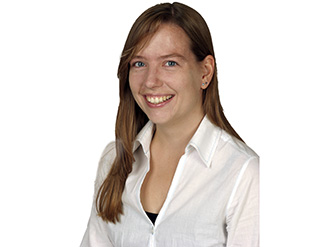Welcome to the eleventh issue of Science in School Editorial article

Photolab
To some people, systems biology is just as difficult to grasp as time travel. If you’ve been wondering what all the fuss is about, let Les Grivell explain what’s behind this buzzword and how to introduce your students to this area of science.
Just as in systems biology, many science disciplines join forces to study the underlying structures of biomolecules. Dominique Cornuéjols introduces us to crystallography, while Beat Blattmann and Patrick Sticher suggest a great classroom activity to crystallise proteins just as scientists do. They’ve even offered to analyse your crystals in their lab and answer your students’ questions in an online chat. Dominique also takes us on a protein’s journey through a series of labs, where scientists try to work out its structure. Why do we need to know? Claire Ainsworth shows us how elucidating the structure of a protein can help develop a new flu vaccine.
While flu is familiar to most of us in Europe, elsewhere in the world, other pathogens cause serious problems, such as Schistosoma flatworms, considered by the World Health Organization as second only in importance to malaria pathogens. Alan Wilson and Stuart Haslam are studying glycoproteins produced by the worms’ eggs and larvae, hoping to find the key to developing a new drug against schistosomiasis.
Health is important for our quality of life, but so too is energy; Gieljan de Vries tells us just how important. But there’s a problem: we’re running out of conventional fuels, and need to find alternative sources of energy. To bring them right into the classroom, why not try the classroom activities described by Dudley Shallcross, Tim Harrison, Steve Henshaw and Linda Sellou?
We all know that our use of energy affects our climate, but how much do we know about the atmospheric phenomena involved? With Karen Bultitude’s help, your students can investigate them in the classroom. While this setting is pretty comfortable, our profiled scientist, physicist Alison McLure, braved much more extreme weather conditions. She tells us about her very varied career, including a spell as a meteorologist in Antarctica.
Another scientist who left the bench is Christian Mellwig – read Vienna Leigh’s story of how he became an enthusiastic science teacher. For teachers in primary schools, however, the idea of giving science lessons can be quite daunting. Samuel Lellouch and David Jasmin from the Pollen project have one solution – they send university students into primary schools to help teachers overcome their fears. Read up on some of the activities that you can use in your classroom, too.
If none of these articles takes your fancy, why not submit your own or encourage your students to give it a go? Science writer Rebecca Skloot tells Sonia Furtado what she believes makes a good science story – and we invite all students to enter our science writing competition. The best stories will be published in Science in School!
Finally, we’re proud to announce the relaunch of ourwebsite: explore its new dynamic features, join ourdiscussion forum, and give us your feedback. And why not join our growing group of translators to help share our articles with online readers in your home country?





